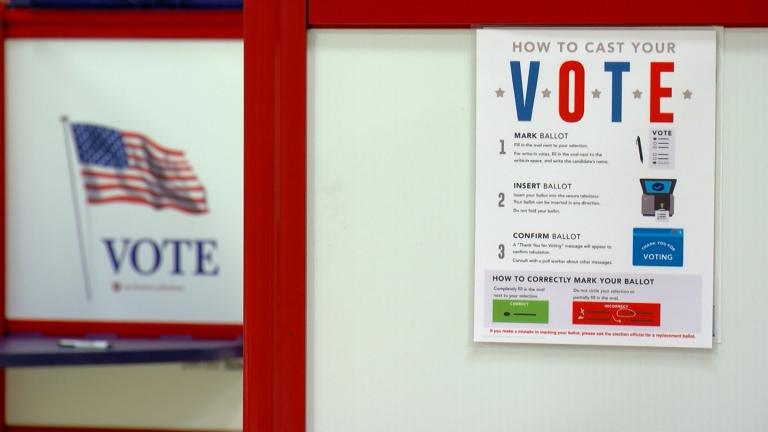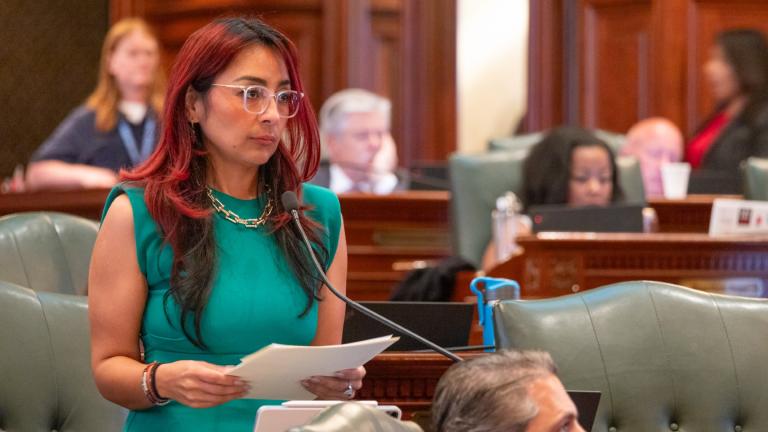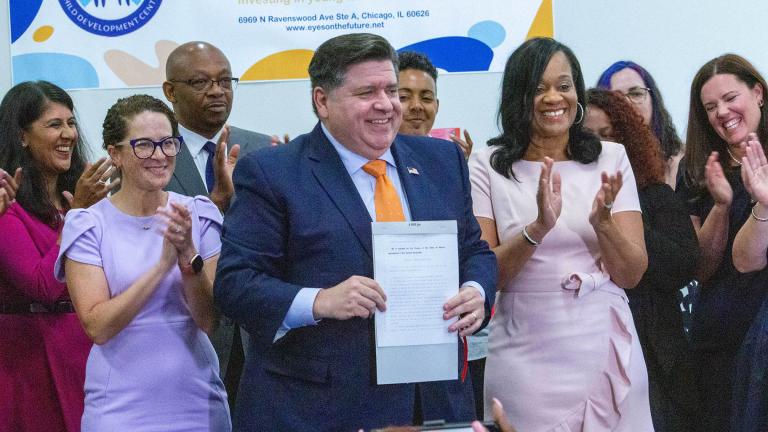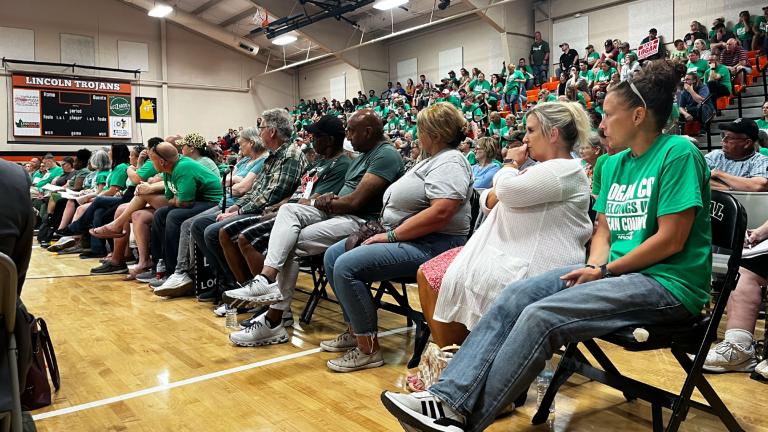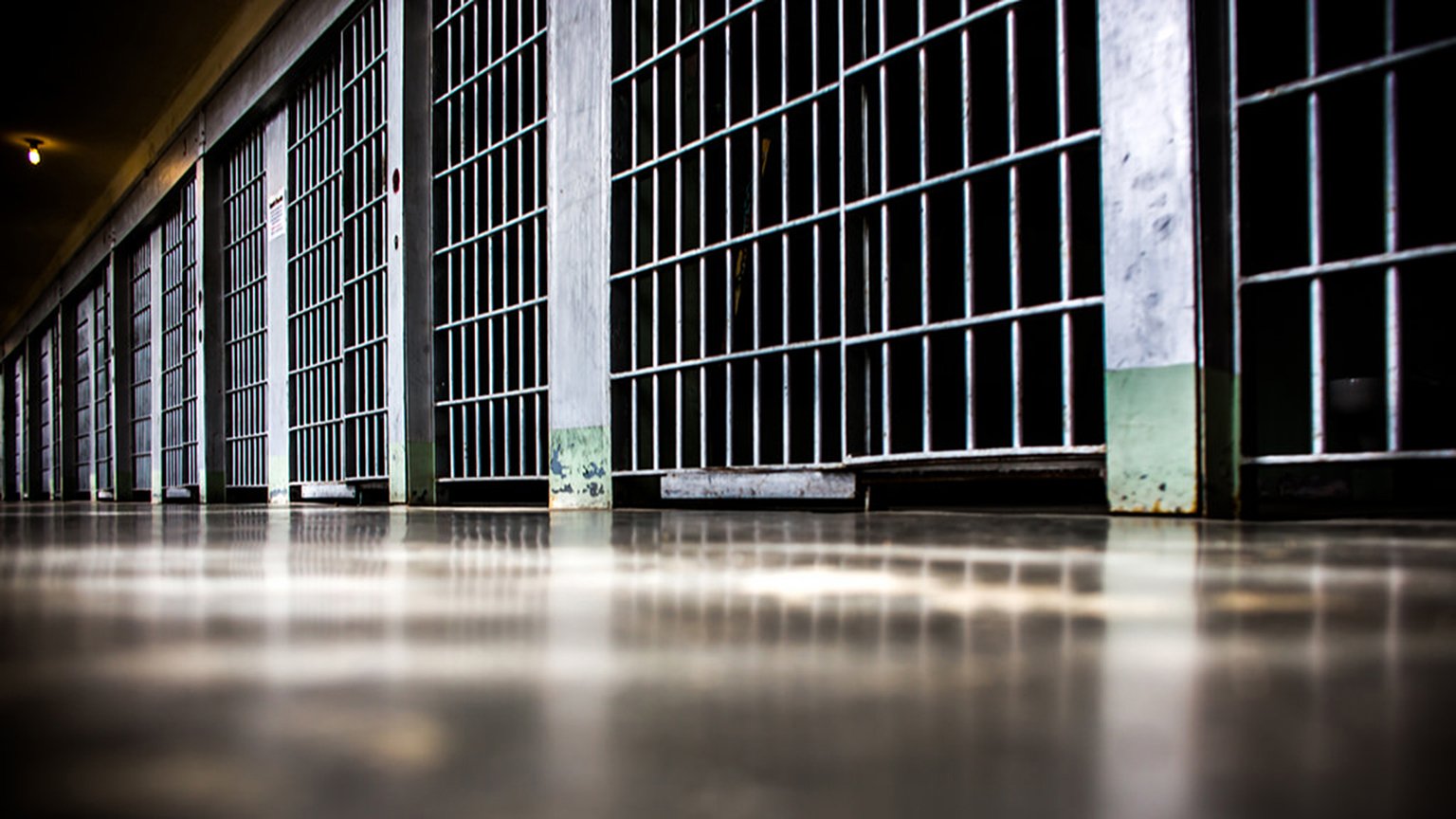 (Thomas Hawk / Flickr)
(Thomas Hawk / Flickr)
Illinois will close five large juvenile detention centers as part of a plan unveiled Friday by Gov. J.B. Pritzker in an effort to “transform” the current system, which Pritzker called “too punitive and too ineffective.”
Once complete in four years, the transformed system will keep children and teens closer to home while they are detained in an effort to keep them connected to their families, schools and communities, said Pritzker, who unveiled the plan alongside Lt. Gov. Juliana Stratton at New Life Community Church in Little Village.
“We cannot continue to be a country that criminalizes the children that need the most help,” Stratton said.
Children and teens will no longer be held in one of five “adult-style, prison-like facilities,” according to the plan. Instead, children and teens in the custody of the Department of Juvenile Justice will be sent to youth residential centers closer to their homes, officials said.
The new facilities will be “dorm-like, youth-friendly” centers designed to rehabilitate children and teens convicted of crimes, rather than to punish them, officials said.
Illinois’ current juvenile justice system serves to “exacerbate [the] trauma” experienced by children and teens involved in the criminal justice system and creates “a culture of instability and violence,” Pritzker said.
Between 2010 and 2018, 55% of those held in Department of Juvenile Justice facilities returned to state custody after being released, Pritzker said.
In addition, Pritzker said the juvenile justice system is rife with “systemic racism.” While Black children and teens make up 15% of the state’s population, they account for 70% of those detained by the Department of Juvenile Justice.
“While I wish we could undo the injustices of the past, or make whole the young lives that were harmed, what we can do is reinvent our path forward, and so we are,” Pritzker said.
Amid efforts to reduce jail populations during the pandemic, there are 97 teens and children in the custody of the Department of Juvenile Justice, Pritzker said, a 65% drop from January 2019.
State Sen. Heather Steans (D-Chicago) said state officials had an obligation to act to reverse the current “failed policy” that is “downright racist.”
The “complete overhaul” of the state’s juvenile justice system will be based on the tenets of restorative justice, Pritzker said.
The plan calls for children and teens involved in the juvenile justice system to receive “wraparound support and intervention services” while increasing financial support for victim services in communities with the most violent crime, Pritzker said.
The facilities set to be vacated by the Department of Juvenile Justice will be repurposed by Illinois Department of Corrections officials “to provide additional space and prevent overcrowding in their facilities,” according to the governor’s office. No layoffs are planned, officials said.
Camille Bennett, the director of the Corrections Reform Project for the ACLU of Illinois, said she was hopeful that the plan would be a “step forward to creating a humane and rehabilitative environment for young people in [Department of Juvenile Justice] custody.”
The ACLU sued the state eight years ago on behalf of teens and children held in Department of Juvenile Justice facilities, alleging that youth faced harsh conditions in filthy jails where some were held in their cells for 22 or 23 hours per day.
Bennett said she would work with state officials to “create a system that truly seeks to recognize and develop the potential in young people committed to their care.”
Contact Heather Cherone: @HeatherCherone | (773) 569-1863 | [email protected]


